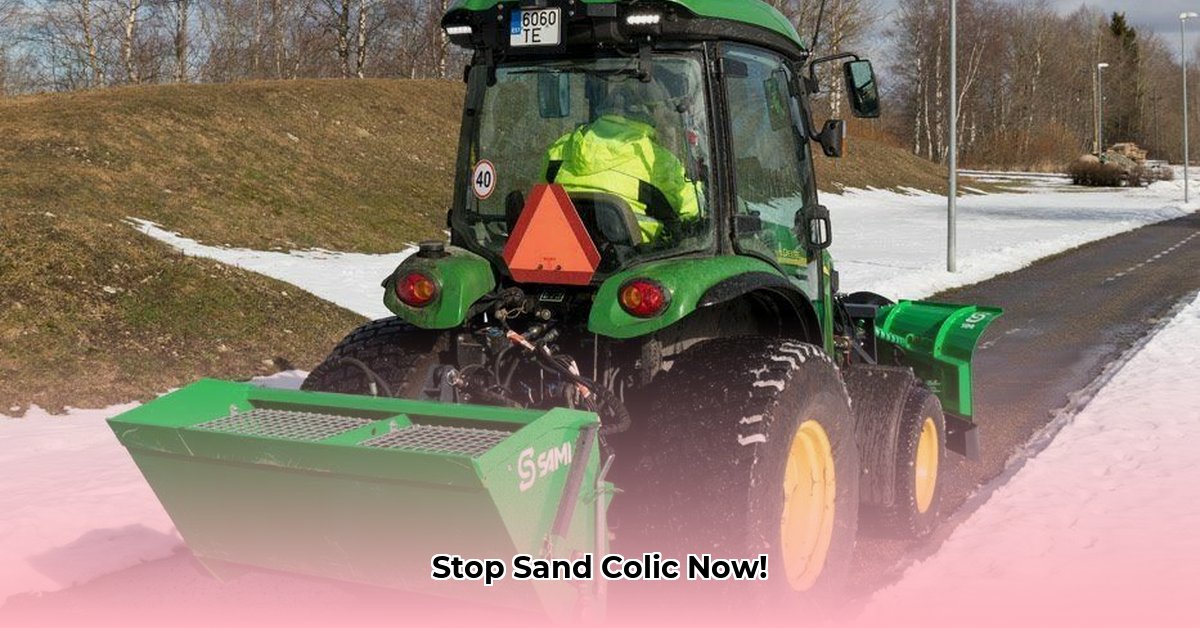
Sand Colic: A Serious Threat
Sand colic is a serious digestive condition affecting horses that ingest sand while grazing. This ingested sand accumulates in the digestive tract, potentially leading to impactions and life-threatening complications. Symptoms include abdominal pain, decreased appetite, and lethargy. Prevention is crucial, and various methods, including dietary adjustments and supplements, exist to mitigate the risk. For other livestock needs, check out Tractor Supply here.
Farnam Sand Clear: Product Overview
Farnam Sand Clear, available at Tractor Supply 1, is a supplement designed to aid in the prevention of sand colic. Its primary active ingredient is psyllium husk, a natural fiber known for its ability to absorb and bind sand particles, facilitating their passage through the digestive system. The manufacturer recommends a specific daily dosage, which should be followed carefully. The product is presented as a palatable option for horses, promoting ease of administration.
Efficacy Analysis: Does It Work?
While psyllium husk's ability to absorb sand is scientifically supported, conclusive evidence on Farnam Sand Clear's specific effectiveness remains limited. Large-scale, controlled studies directly comparing it to other preventative methods are lacking. Existing research on psyllium husk demonstrates its effectiveness in increasing fecal bulk, which can theoretically aid in sand elimination; however, this doesn't guarantee similar effectiveness in Farnam Sand Clear’s specific formulation. It's crucial to understand that this product acts as a preventative measure, not a treatment for existing sand colic. Veterinary intervention is critical should your horse exhibit colic symptoms.
User Experiences: Anecdotal Evidence
Many horse owners report positive experiences with Farnam Sand Clear, citing its palatable nature and their horses' acceptance of the supplement. However, these testimonials, while valuable, represent anecdotal evidence and do not constitute scientific proof of efficacy. Individual results may vary significantly depending on factors such as the amount of sand ingested, the horse's overall health, and other dietary components.
Comparative Analysis: Other Prevention Methods
Farnam Sand Clear is not the sole approach to sand colic prevention. Dietary adjustments, such as providing hay from non-sandy areas and monitoring pasture conditions, are essential preventative measures. Other supplements, potentially containing different types of fiber or additional agents, may also exist, offering varying levels of effectiveness. The cost-effectiveness of Farnam Sand Clear needs further assessment, considering the overall cost of prevention versus potential veterinary bills related to sand colic treatment. This comparison highlights the need for a holistic approach to sand colic prevention, rather than relying solely on one product.
Potential Risks and Side Effects
Like any supplement, Farnam Sand Clear may carry potential risks. Psyllium husk can bind to certain nutrients, potentially leading to vitamin or mineral deficiencies if not properly managed within a balanced diet. Interactions with other medications are also possible. Always consult your veterinarian before introducing any new supplements to your horse's diet, especially if they are on other medications or have existing health conditions. A veterinarian can advise on appropriate dosage and monitor your horse's response to the supplement.
Conclusion: A Balanced Perspective
Farnam Sand Clear presents a readily available and seemingly palatable option for horse owners seeking to prevent sand colic. However, a balanced perspective requires acknowledging the limitations. While the core ingredient, psyllium husk, possesses sand-binding properties, conclusive scientific evidence supporting Farnam Sand Clear's efficacy specifically is limited. It's essential to view this supplement as part of a comprehensive approach to sand colic prevention, alongside dietary modifications, pasture management, and regular veterinary care. Ultimately, responsible preventive care remains paramount to your horse's well-being.
Disclaimer
This review is for informational purposes only and does not constitute veterinary advice. Always consult with a qualified veterinarian before making any decisions concerning your horse's health or introducing new supplements to its diet.